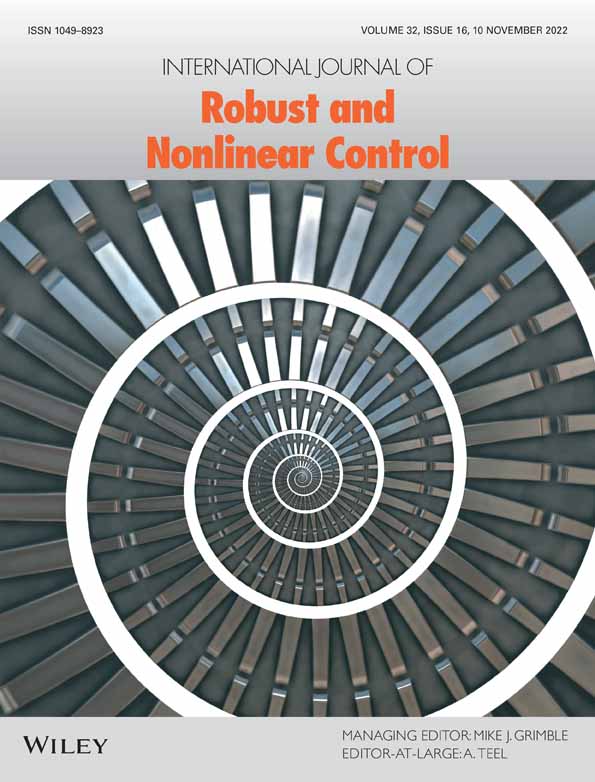An internal-model-based event-triggered strategy for rendezvous with connectivity preservation problem of multi-agent systems
Funding information: National Natural Science Foundation of China, Grant/Award Number: 62073241; Shanghai Municipal Commission of Science and Technology Project, Grant/Award Number: 19511132101; Shanghai Municipal Science and Technology Major Project, Grant/Award Number: 2021SHZDZX0100; the Fundamental Research Funds for the Central Universities, Grant/Award Number: 22120220073; Shanghai Rising-Star Program, Grant/Award Number: 22QA1409400
Abstract
In this article, an internal-model-based event-triggered control is proposed for the rendezvous problem of linear uncertain multi-agent systems. Our approach is not only robust to parametric uncertainty and external disturbances, but also capable of preserving the connectivity of the position-dependent time-varying communication network. The event-triggered mechanism is in a piecewise constant form and thus can be directly implemented in the digital platform. Technically, different from traditional internal model design, a class of distributed dynamic compensators are designed based on sampled relative position and velocity signals to convert the rendezvous problem into a stabilization with connectivity problem of a special augmented system, which is then solved by a piecewise constant stabilizer. Finally, it is proved that the rendezvous problem of the original system is solvable by stabilizing such augmented system and excluding Zeno behavior.
CONFLICT OF INTEREST
The authors declare no potential conflict of interests.
Open Research
DATA AVAILABILITY STATEMENT
Research data are not shared.




